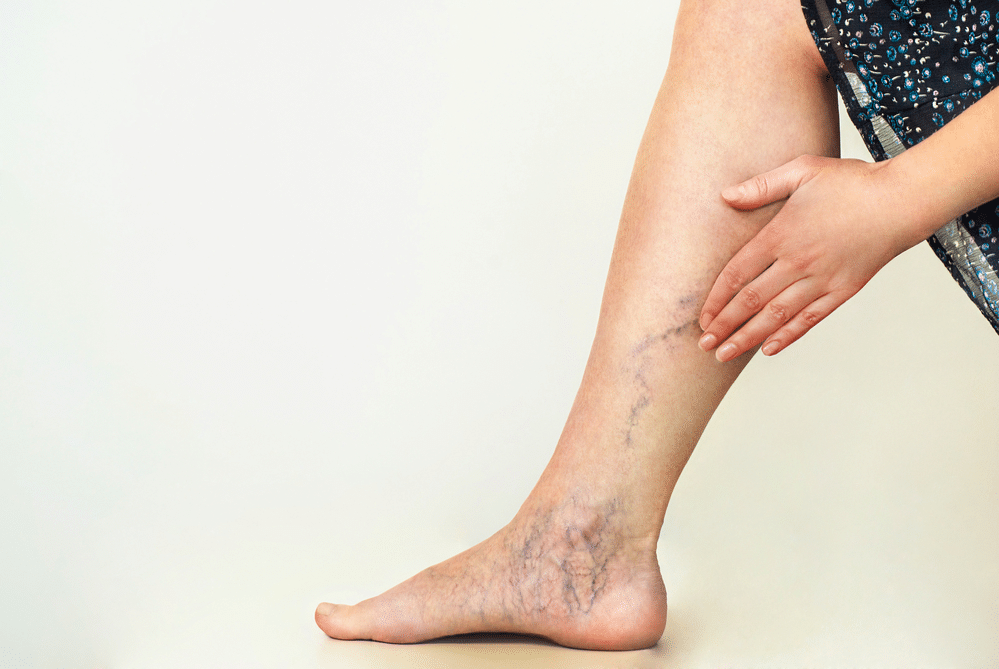Vein problems are common. More than half the population suffers from spider veins, varicose veins, or lymphedema at some point in life. These issues aren’t usually life-threatening, but they sometimes cause symptoms that make it difficult for the patient to participate in certain activities. At Venus Vein Clinic in Omaha, NE, patients can get treated by an experienced vein specialist.
What Happens If Vein Problems Go Untreated?
There are three common vein problems. Spider veins and varicose veins both occur when blood pools in the vessels because the valves are no longer functional. Lymphedema occurs when the lymphatic system can no longer get rid of liquids secreted by the vascular system.
These conditions don’t typically lead to serious health issues, but they can be an indicator of other diseases. They are also a cosmetic concern because many patients feel self-conscious about the appearance of their skin. Larger varicose veins sometimes cause pain and other symptoms that prevent people from moving around freely, so they need to be treated.
Spider Veins
Spider veins are small, broken veins near the surface of the skin. Because their valves are damaged, the blood can no longer flow through the veins smoothly, and it pools, causing them to become discolored. They are usually red, pink, purple, or blue, and they might appear in a cluster and be accompanied by some redness.
This vein problem isn’t usually dangerous, and it doesn’t cause pain or swelling. Sometimes, it gets worse over time. Patients don’t need to get treatment unless they feel uncomfortable with the appearance of the affected area. Some people avoid certain activities that involve exposing their spider veins. They might become more confident and less self-conscious after having their veins removed.
Varicose Veins
Varicose veins are very similar to spider veins, but they are much bigger, and they are sometimes located deeper in the patient’s tissues. They can cause bulges in the skin and be extremely painful. Some of the symptoms associated with varicose veins are swelling, cramping, dry skin, and leg ulcers. Usually, varicose veins aren’t dangerous, but they sometimes indicate a problem with the circulatory system.
Some studies have shown that people with varicose veins are more likely to suffer from blood clots, which can potentially lead to a pulmonary embolism. If you’ve recently developed varicosities, or you have painful veins that are preventing you from taking part in your favorite activities, reach out to us. We’ll determine whether you’re at risk of complications and let you know what your treatment options are.
Lymphedema
Fluid leaks from your vascular system into the other tissues, where it is collected and removed by the lymphatic system. When this process isn’t working normally, the patient experiences swelling in the legs, arms, or other body parts. Temporary swelling is nothing to worry about, and it can be caused by an illness or injury. However, permanent or unexplained edema needs to be examined.
It could be a symptom of a more serious underlying condition like kidney and liver failure or lymphedema. The latter is a chronic issue caused by a failure of the lymphatic system. When left untreated, lymphedema can lead to pain, hardened tissues, problems with the skin, and a restricted range of motion. To prevent these issues, it’s important to get this condition diagnosed and addressed at the clinic.
When Should You Contact the Vein Specialist?
Get in touch with us as soon as you notice that you have swelling in your legs, discolored veins, or leg pain. Because some vein issues are caused by serious diseases, it’s important to get your condition diagnosed as soon as possible. Once you know what’s causing the problem, you can decide whether treatment is necessary.
It’s best to get treated if you’re in pain, have significant swelling, or your skin has changed. However, you might also want to have your diseased veins removed if they are affecting your self-confidence. We’re happy to treat cosmetic as well as medical issues related to your vascular system.
Is Surgery Necessary?
In most cases, surgery isn’t necessary. Spider veins and small to medium-sized varicose veins can be treated with radiofrequency ablation, VenaSeal ablation, sclerotherapy, or Varithena. These minimally invasive methods involve injecting a substance or applying energy to the affected veins to close them. Over time, the body breaks down and absorbs the dead vein, so it fades away.
Large varicosities sometimes have to be surgically removed. The process we use is called ligation and stripping. Although it’s slightly more invasive than the above-named methods, it doesn’t involve general anesthesia, and patients recover very quickly. Lymphedema can’t be cured, but it can be treated in the clinic and at home with a pneumatic compression device. Patients who suffer from lymphedema need ongoing care, but the condition can be managed.
Keep Your Veins Healthy
While most vein problems aren’t life-threatening, they can be extremely painful and disruptive. Sometimes, they indicate a health issue like heart disease or a liver and kidney problem. If you’ve been suffering from spider veins, varicose veins, or lymphedema, don’t hesitate to get in touch with a vein specialist. Contact us at Venus Vein Clinic in Omaha, NE to book your initial consultation and find out more about our treatments.

